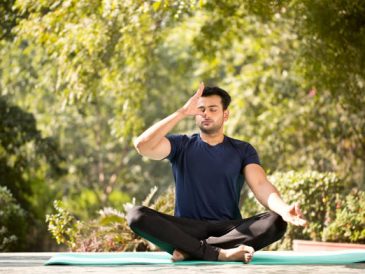International Yoga Day is a celebration of the ancient practice that has permeated cultures worldwide. While yoga has its roots in ancient India, its popularity has spread globally, influencing countless lives. In the United States, one of the pivotal figures in popularizing yoga was Swami Vivekananda, often considered the first American yogi. His journey and teachings offer profound insights into the transformative power of yoga and its relevance in contemporary society.
The Journey of Swami Vivekananda: Swami Vivekananda, born Narendranath Datta in 1863, embarked on a spiritual quest that led him to the teachings of his guru, Sri Ramakrishna. Inspired by his guru’s wisdom, Vivekananda dedicated himself to spreading the message of Vedanta and yoga. In 1893, he represented Hinduism at the Parliament of the World’s Religions in Chicago, marking his entry onto the global stage.
Yoga Beyond Physical Asanas: While yoga is often associated with physical postures (asanas), Swami Vivekananda emphasized its deeper dimensions. He taught that yoga is a holistic practice encompassing physical, mental, and spiritual well-being. Beyond perfecting poses, he encouraged practitioners to delve into meditation, self-reflection, and the pursuit of self-realization.
Unity and Universality: One of Vivekananda’s most enduring messages was the idea of unity and universality. He emphasized that underlying all religious and spiritual traditions is a common essence, which he termed “the eternal principle.” Yoga, according to Vivekananda, is a means to realize this unity and transcend the divisions that plague humanity.
Yoga and Social Transformation: Vivekananda believed that yoga should not be confined to individual spiritual growth but should also catalyze social change. He advocated for the upliftment of the masses, especially the poor and oppressed. His teachings inspired various social and educational initiatives aimed at empowering the marginalized sections of society.
Fearlessness and Self-Confidence: Central to Vivekananda’s teachings was the cultivation of fearlessness and self-confidence. He urged individuals to recognize their innate divinity and harness their inner strength to overcome challenges. Through yoga and Vedanta, he sought to instill a sense of self-assurance and resilience in his followers.
Service to Humanity: Vivekananda’s yoga was not detached from the world but deeply engaged with it. He believed in the concept of “seva” or selfless service as a vital aspect of spiritual practice. He encouraged his disciples to serve humanity with compassion and empathy, viewing every individual as a manifestation of the divine.
Adaptability and Evolution: Despite being rooted in ancient traditions, Vivekananda emphasized the adaptability of yoga to contemporary times. He recognized that society is constantly evolving, and yoga must evolve accordingly to remain relevant. His teachings paved the way for the modernization and democratization of yoga, making it accessible to people from all walks of life.
Inner Freedom and Liberation: At the heart of Vivekananda’s yoga was the quest for inner freedom and liberation (moksha). He taught that true fulfillment lies not in external possessions or achievements but in the realization of one’s true nature. Through disciplined practice and self-inquiry, individuals can break free from the shackles of ignorance and experience profound inner peace.
Conclusion: As we commemorate International Yoga Day, the legacy of Swami Vivekananda serves as a guiding light, illuminating the path towards holistic well-being and spiritual realization. His teachings remind us that yoga is not merely a physical exercise but a transformative journey of self-discovery and self-transcendence. By embracing the timeless wisdom of the first American yogi, we can unlock the boundless potential of yoga to heal, empower, and unite humanity.




